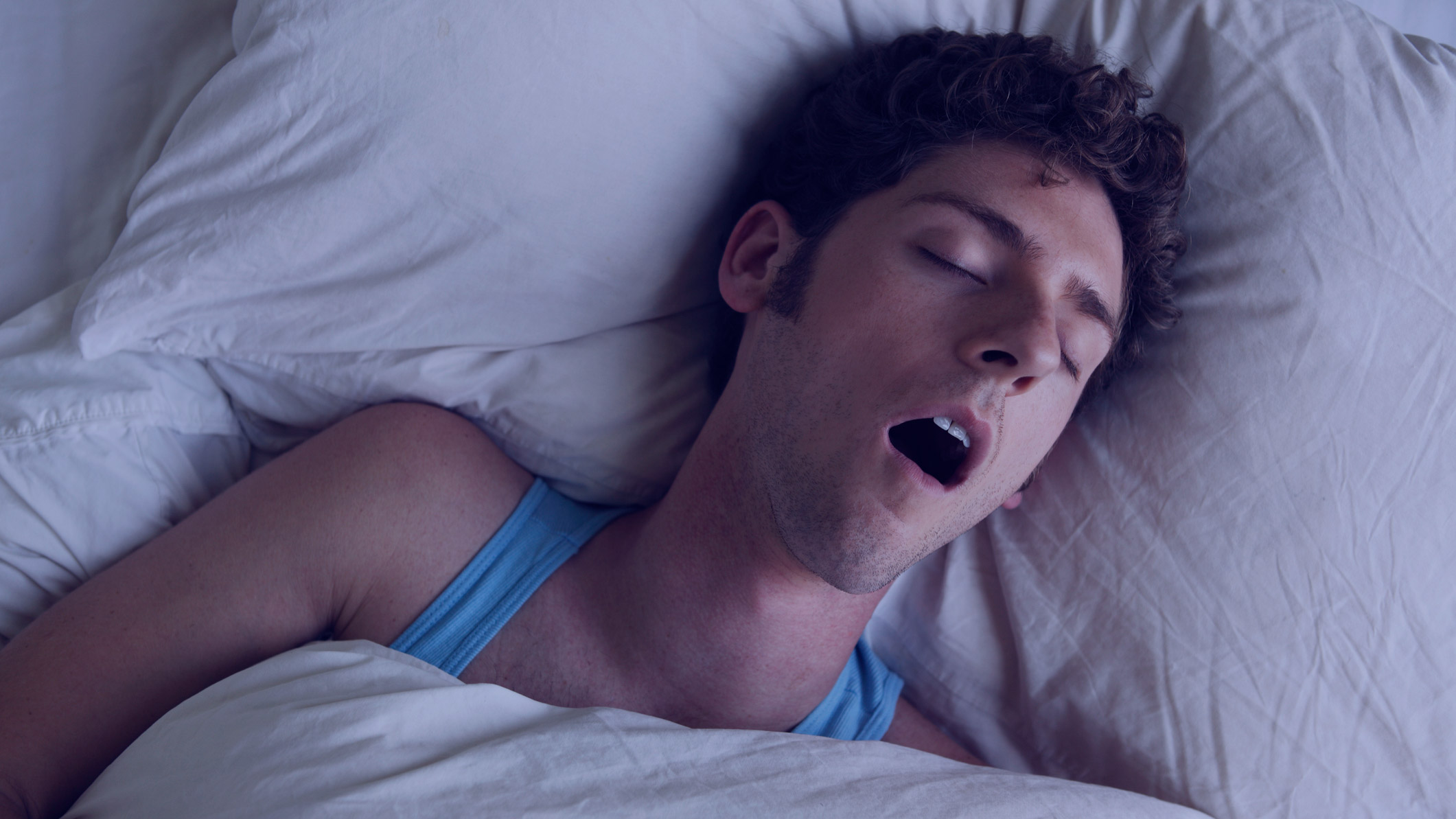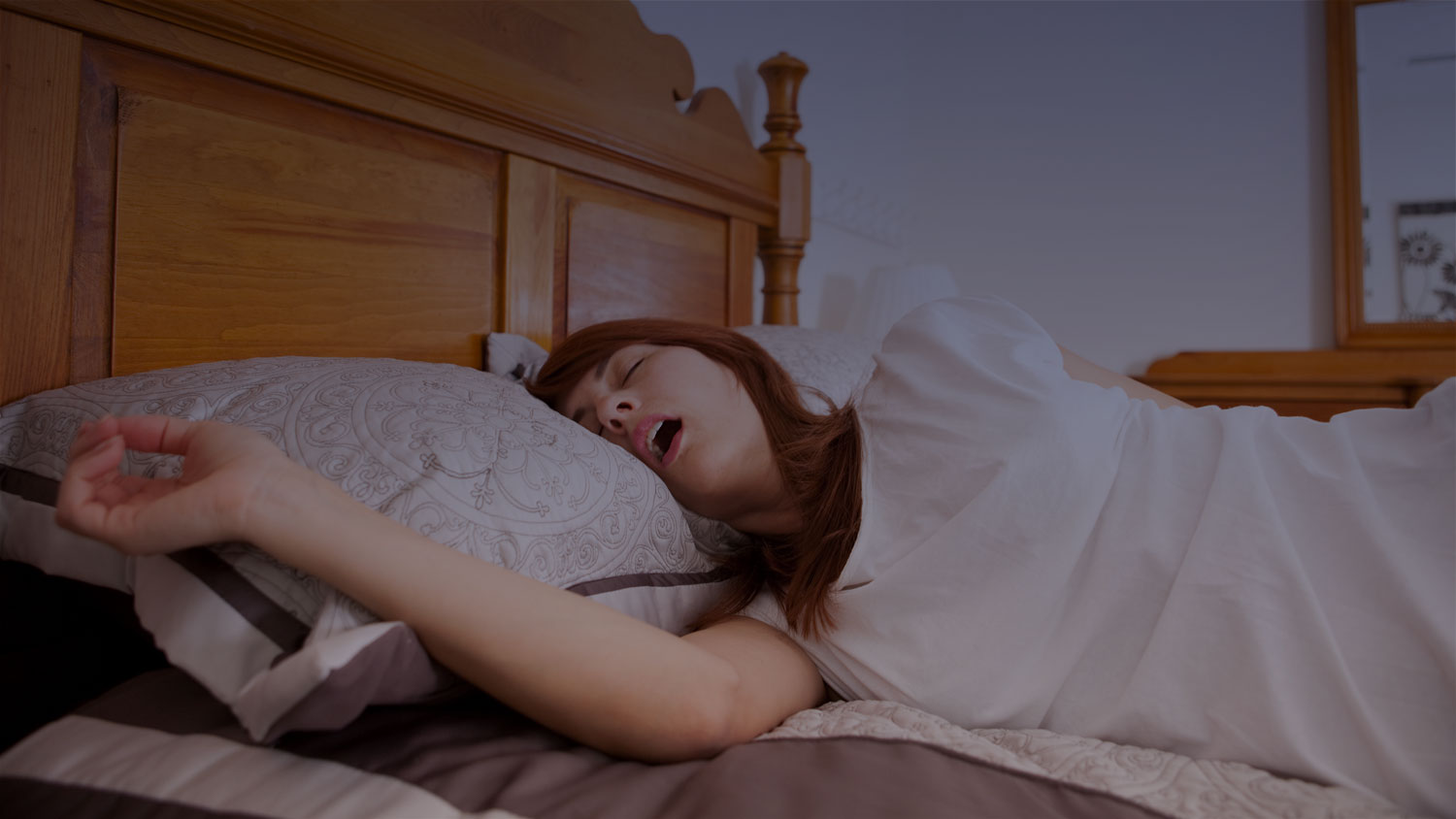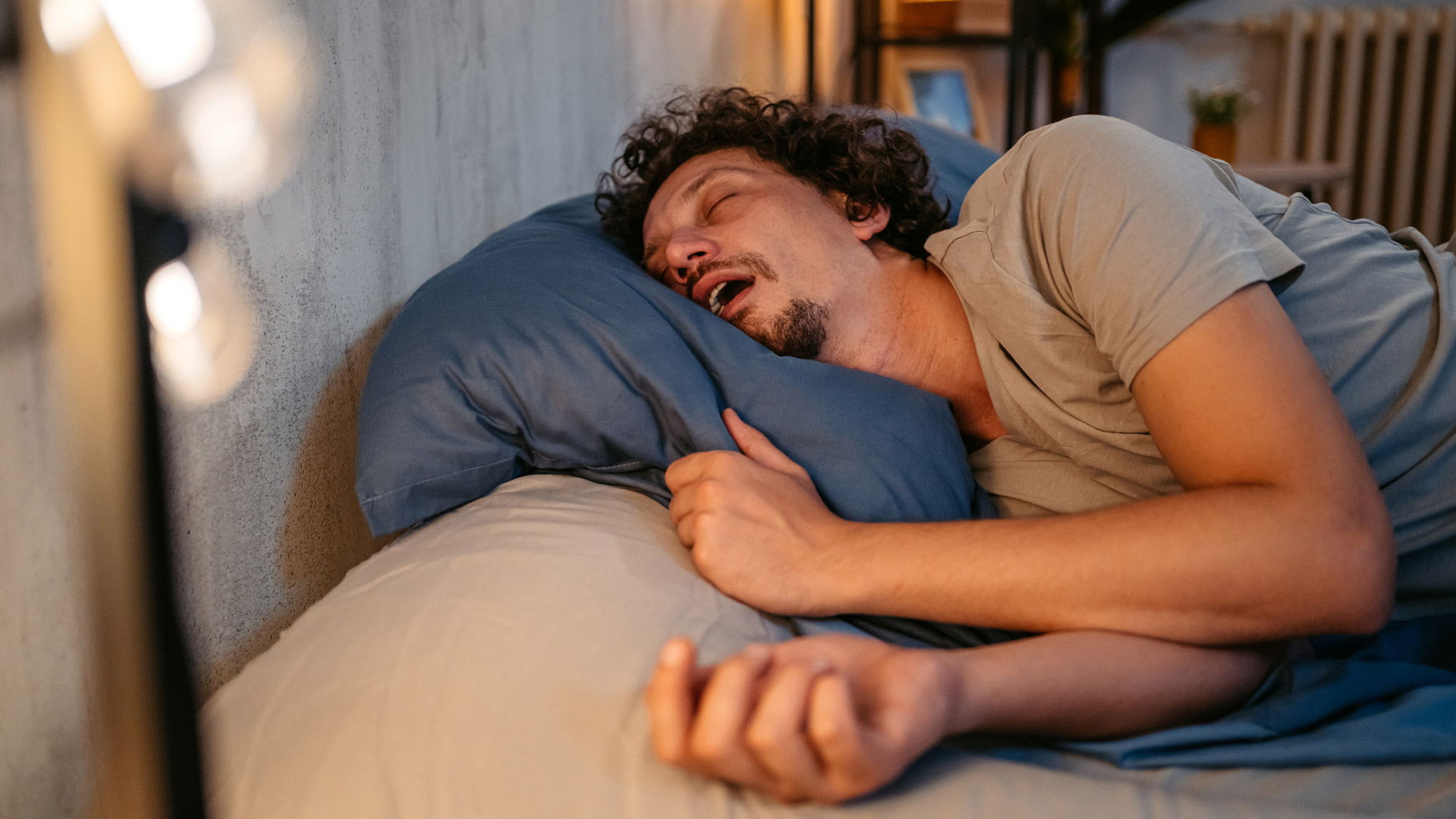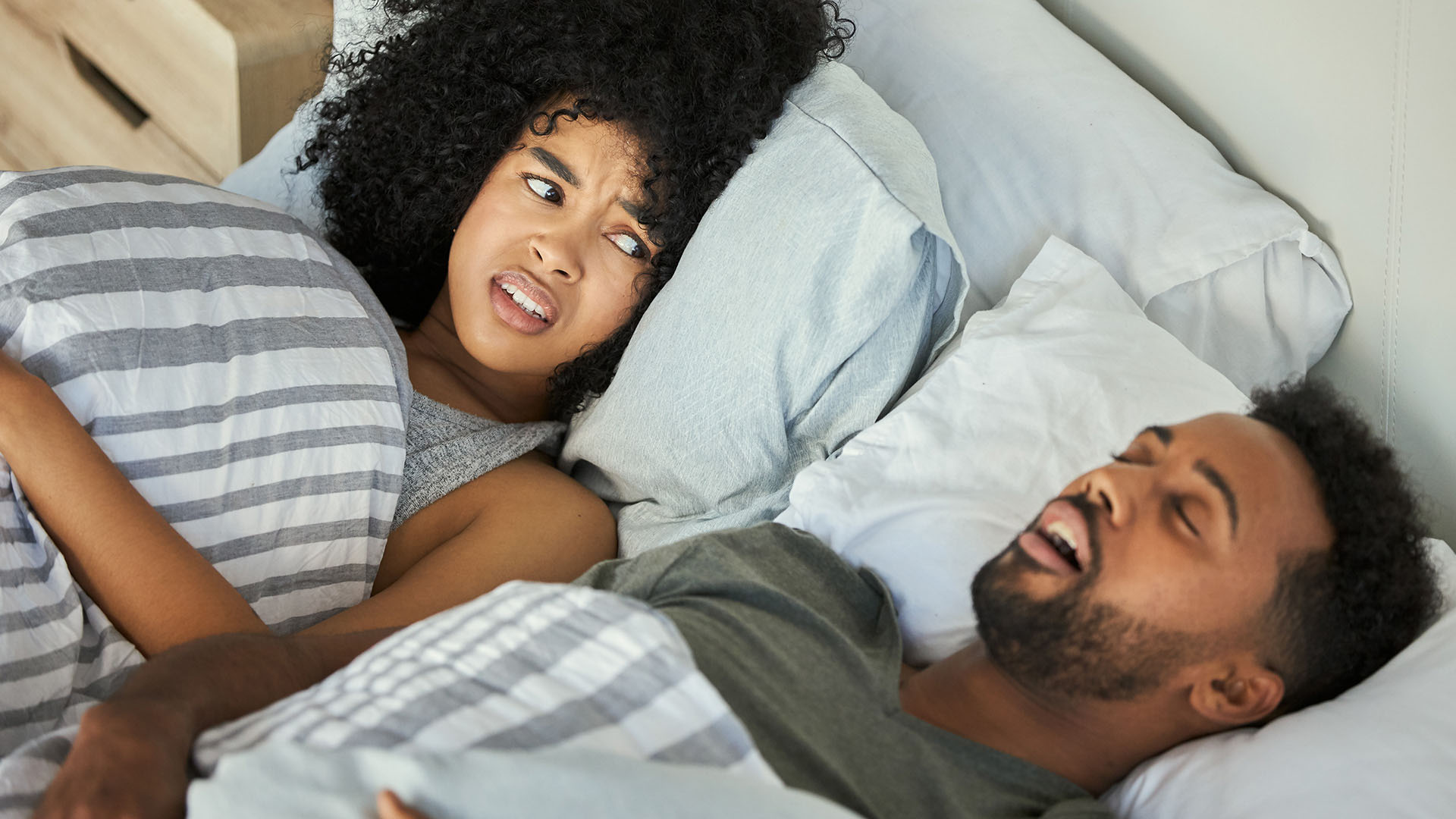
According to Yale Medicine, as many as 90 million Americans snore on occasion, with 37 million people reporting that they snore regularly. Sometimes it’s light enough as to not be disruptive to yourself (or your bedroom partner, if you have one); other times, it can jolt you (or your loved ones) awake and contribute to poor sleep, regardless of whether or not you've invested in the best mattress.
No matter if you snore every once in a while, have recently started snoring, or have a solid history of doing so, you might be curious: is snoring safe or potentially harmful? When might snoring be cause for concern? Could it indicate how well your sleep quality and overall well-being are faring… and even potentially clue you into your risk for adverse health outcomes?
For answers to these FAQs about snoring, we consulted Eric J. Kezirian, MD, MPH, a leader in the surgical evaluation and treatment of adults with snoring and obstructive sleep apnea, who is board-certified in both otolaryngology and sleep medicine. (And in the cases where it's normal but still annoying, head to our guide to how to stop snoring for more advice.)
Is snoring normal?
Dr Kezirian clarifies that snoring is neither ‘normal’ nor ‘abnormal.’ Instead, depending on its effects and severity, it can be harmless or a cause for concern. “We know that snoring is common and may not present problems,” he explains. “By itself, snoring is generally thought to be a problem if it disturbs others, mainly if it wakes up other people.”
Yet as we’ll soon see, snoring may also indicate the presence of a sleep disorder and potentially lead to adverse health outcomes.

Does snoring mean poor sleep quality?
“For a long time, it was felt that snorers were not disturbed by the sound of their own snoring—but there is some evidence that the sound of snoring may actually disrupt the sleep of the person who is snoring,” says Dr Kezirian.
He cites a 2013 study published in the journal Sleep, which enrolled 400 snorers—half of whom wore earplugs during rest—to see if snoring sounds actually created ‘microarousals’ at night and if the earplug group would fare better. In short, the beneficial effects of wearing earplugs were most noted in men and people without obesity.
However, the study was limited in that:
- It didn’t evaluate the same individuals with and without earplugs on separate nights
- The effect was only seen in one type of respiratory cycle-related electroencephalographic changes (RCREC), though that type is an important indicator of sleep quality
- The researchers noted that the ‘microarousals’ could be associated with increased breathing linked to snoring, rather than the sounds themselves
“In essence, the loudness may play a role [in sleep quality],” Dr Kezirian summarizes, though it’s not inevitable.
When is snoring a cause for concern?
Perhaps you know you snore, but still clock up enough high-quality shut-eye and feel rested and energized upon awakening. In this case, do you really need to take measures to reduce snoring, or can you keep calm and carry on?
“People should be worried about their snoring if it is waking up others routinely, or if they have some of the potential consequences of obstructive sleep apnea (OSA),” Dr Kezirian explains. Snoring can (but won’t always) be a sign of this underlying sleep disorder.

Obstructive sleep apnea has the potential to be dangerous in a few ways. “It differs from snoring alone in that there is blockage of breathing, usually in the throat,” the sleep doctor shares. “Because a person with obstructive sleep apnea will wake themselves up—often briefly and without their being aware of it—this can affect the quality of a person’s own sleep and leave them feeling unrefreshed when they awaken in the morning.”
But waking up groggy isn’t the only risk of OSA. “If the blockage in breathing occurs often (what is called moderate to severe obstructive sleep apnea), there can be health effects like high blood pressure and risks of stroke and heart attack,” Dr Kezirian warns.
A 2021 meta-analysis of 16 studies, published in the journal Frontiers in Neurology, assessed the link between snoring and stroke in 3,598 stroke patients and 145,901 participants. The authors found that snoring significantly increased the risk for stroke by 46 percent. These results underscore the importance of getting your snoring under control, particularly if it robs you of quality sleep and/or signals that you’re dealing with OSA.
What’s more: according to the American Medical Association, approximately 30 million people in the United States have sleep apnea—yet only 20 percent of them actually receive a proper diagnosis.

If your bed partner notices that your snoring is bad and/or you stop breathing throughout the night, it’s a good idea to consult a physician. Solo sleepers may not be as privy to these nighttime phenomena, but they may choose to do the same if their snoring wakes them and/or they routinely feel sluggish even after logging the requisite 7 to 9 hours of sleep per night.
Tips to reduce snoring
Snoring has the potential to be innocent or harmful for both your sleep and overall well-being. If snoring is robbing you (and/or your bed partner) of the quality sleep you need to feel and function your best, you may choose to make a few dietary and lifestyle modifications to reduce snoring.
According to Dr Kezirian, some of the best ways to stop snoring include:
- Not sleeping on your back
- Sleeping with your head elevated and chin tilted backwards
- Trying to sleep (and breathe) with your mouth closed
- Avoiding sleeping pills, antihistamines, and alcohol close to bedtime
- Staying hydrated throughout the day
- Maintaining a healthy weight
- Quitting smoking
Try one or some of these out for size to see if it helps limit your snoring and promote a better night’s rest.







